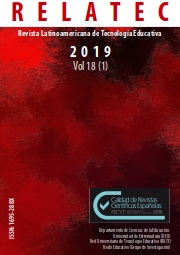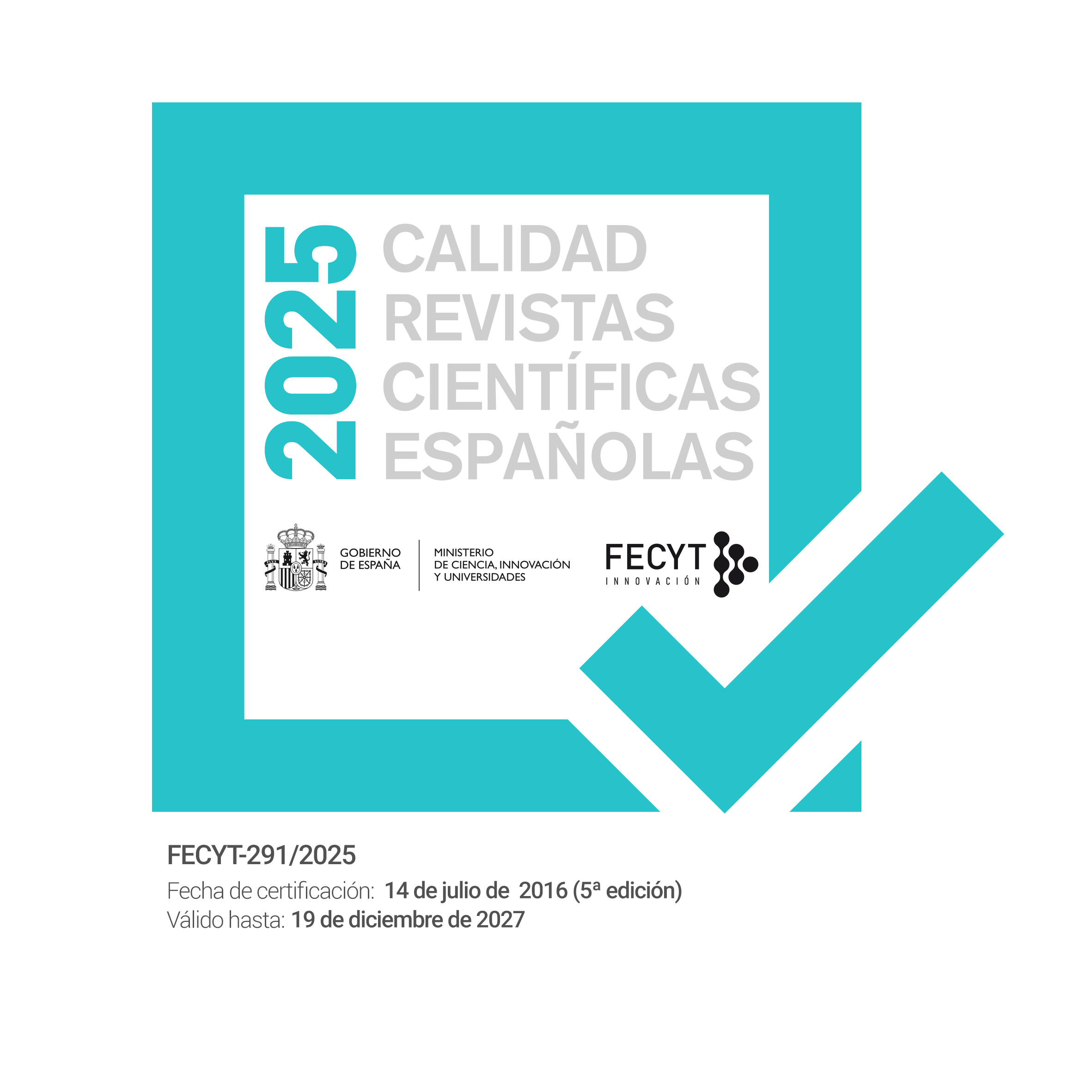Towards an education for critical and active digital citizenship in the university.
DOI:
https://doi.org/10.17398/1695-288X.18.1.175Keywords:
Neo-republicanism, digital citizenship, digital citizenship education, digital citizenship scale, cyberactivismAbstract
We start with the neo-republican model of citizenship proposed by Habermas to situate it in the context of the digital age. The digital citizen is defined as a person who exercises their rights on the Internet of citizenship from ethical and critical principles consistent with a political activism, in order to promote social change. This study has focused on the evaluation of digital citizenship through the Digital Citizenship Scale of Choi, Glassman and Cristol (2017), with the aim of ascertaining, what profile, dimensions and needs of digital citizenship characterize the university students interviewed (n = 250). The results show that young university students have high digital skills and technical skills, as well as a very regular use of digital media. However, the dimensions of critical approach and political activism o cyberactivsim are deficient. Finally, the fact of seeking information or information through digital means significantly leads to greater digital citizenship, while the accomplishment of activities and academic university tasks does not bring any increase. In conclusion, the university educational level faces the challenge of promoting critical and active digital citizenship education, especially in its dimension of activism or online engagement in all aspects of the teaching-learning process.
Downloads
References
Ahlquist, J. (2017). Digital Student Leadership Development. New Directions for Student Leadership, 153,47-62. https://doi.org/10.1002/yd.20229
Area, M., Borrás, J. y San Nicolás, B. (2015). Educar a la generación de los Millennials como ciudadanos cultos del ciberespacio. Apuntes para la alfabetización digital. Revista de Estudios de Juventud, 109, 13-32.
Aristizabal, P. y Cruz, E. (2018). Desarrollo de la competencia digital en la formación inicial del profesorado de Educación Infantil. Píxel-Bit. Revista de Medios y Educación, 52, 97-110. http://dx.doi.org/10.12795/pixelbit.2018.i52.07
Becker, A. S., Brown, M., Dahlstrom, E., Davis, A., DePaul, K., Diaz, V., y Pomerantz, J. (2018). Horizon
Report: 2018 Higher Education Edition. Louisville: EDUCASE
Blevins, B., LeCompte, K. y Wells, S. (2014). Citizenship education goes digital. The Journal of Social Studies Research, 38(1), 22-44. https://doi.org/10.1016/j.jssr.2013.12.003
Bryan, V. C. (2018). Handbook of Research on Human Development in the Digital Age. Hershey: IGI Global.
Choi, M. (2016). A Concept Analysis of Digital Citizenship for Democratic Citizenship Education in the Internet Age. Theory y Research in Social Education, 44(4), 565-607. https://doi.org/10.1080/00933104.2016.1210549
Choi, M., Glassman, M. y Cristol, D. (2017). What it means to be a citizen in the internet age: Development of a reliable and valid digital citizenship scale. Computers y Education, 107, 100-112. https://doi.org/10.1016/j.compedu.2017.01.002
Cortina, A. (2006, diciembre 30). Educar para una ciudadanía activa. El País.
Cortina, A. (2018, marzo 28). Ciudadanía digital y dignidad humana. El País.
Crockett, L. W. y Churches, A. (2018). Growing Global Digital Citizens. Better Practices That Build Better Learners. Bloomington: Solution Tree Press.
Culver, S. H. y Jacobson, T. (2012). Alfabetización mediática como método para fomentar la participación cívica. Comunicar, 20(39), 73-80. https://doi.org/10.3916/C39-2012-02-07
Curran, M. B. F. X. y Ribble, M. (2017). P–20 Model of Digital Citizenship. New Directions for Student Leadership, 153, 35-46. https://doi.org/10.1002/yd.20228
De Paz, D. (2007). Escuelas y educación para la ciudadanía global. Barcelona: Octaedro.
Días-Fonseca, T. y Potter, J. (2016). La educación mediática como estrategia de participación cívica on-line en las escuelas portuguesas. Comunicar, 24(49), 9-18. https://doi.org/10.3916/C49-2016-01
Emejulu, A. y McGregor, C. (2016). Towards a radical digital citizenship in digital education. Critical Studies in Education. https://10.1080/17508487.2016.1234494
Frau-Meigs, D., O`Neill, B., Soriani, A. y Tomé, V. (2017). Digital Citizenship Education: Overview and new perspectives. Strasbourg: Council of Europe Publishing.
Pedersen, A. Y., Nørgaard, R. T., y Köppe, C. (2018). Patterns of Inclusion: Fostering Digital Citizenship through Hybrid Education. Educational Technology y Society, 21(1), 225–236. https://www.jstor.org/stable/26273882
Quesada, F. (2008). Sendas de democracia: entre la violencia y la globalización. Madrid: Editorial Trotta.
Reynolds, L., y Scott, R. (2016). Digital Citizens: Countering Extremism Online. London: Demos.
Ribble, M. y Biley, G. (2007). Digital citizenship in schools. Washington: International Society for Technology in Education.
Robles, J. M. (2009). Ciudadanía digital: Una introducción a un nuevo concepto de ciudadano. Barcelona: Ed. UOC.
Rubio , J. (2007). Teoría crítica de la ciudadanía democrática. Madrid: Trotta.
Smith, J., Hewit, B. yy Skrbiš, Z. (2015). Digital socialization: young people’s changing value orientations towards internet use between adolescence and early adulthood. Information, Communication y Society, 18(9), 1022-1238. https://doi.org/10.1080/1369118X.2015.1007074
Terrén, E., y Fernández, M. (1999). Educación y modernidad: entre la utopía y la burocracia. Barcelona: Anthropos.
Tornero, J. M. P., y Varis, T. (2010). Media Literacy and New Humanism. Moscow: UNESCO.
Xu, S., Yang, H. H., MacLeod, J. y Zhu, S. (2018). Social media competence and digital citizenship among college students. Convergence: The International Journal of Research into New Media Technologies, 20(10), 1-18. https://doi.org/10.1177/1354856517751390
Yildiz, M. N. y Keengwe, J. (2016). Handbook of Research on Media Literacy in the Digital Age. Hershey: IGI Global. http://doi.org/10.4018/978-1-4666-9667-9
Downloads
Published
Issue
Section
License
Authors who publish in this journal accept the following conditions:
1. The Author retains copyright in the article. Upon acceptance of the article, the author shall grant to the Publisher the right of first publication of the article. with the dcoument registered with the Creative Commons Attribution-NonCommercial-NoDerivative 4.0 International (CC BY-NC-ND) license, which allows to third parties to use what is published whenever they mention the authorship of the work and the first publication in this journal.
2. Authors can make other independent and additional contractual agreements for the non-exclusive distribution of the article published in this journal (eg, include it in an institutional repository or publish it in a book) provided they clearly indicate that the work was published for the first time in this journal.
3. Authors are allowed and recommended to publish their work on the Internet (for example on institutional or personal pages) before and during the review and publication process, as it can lead to productive exchanges and a greater and faster diffusion of published work (see The Effect of Open Access).









